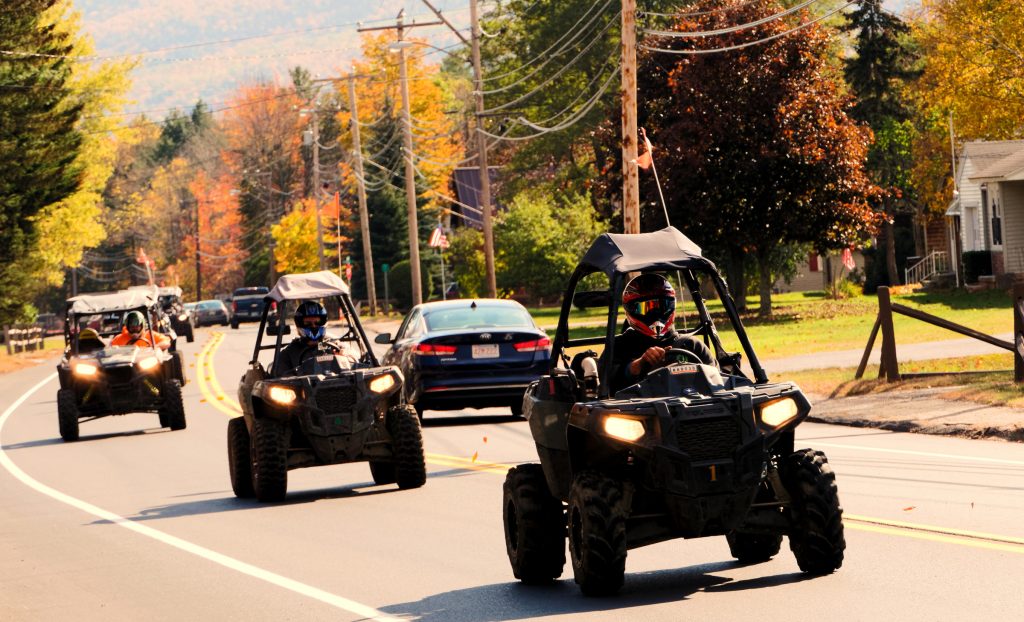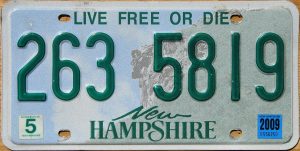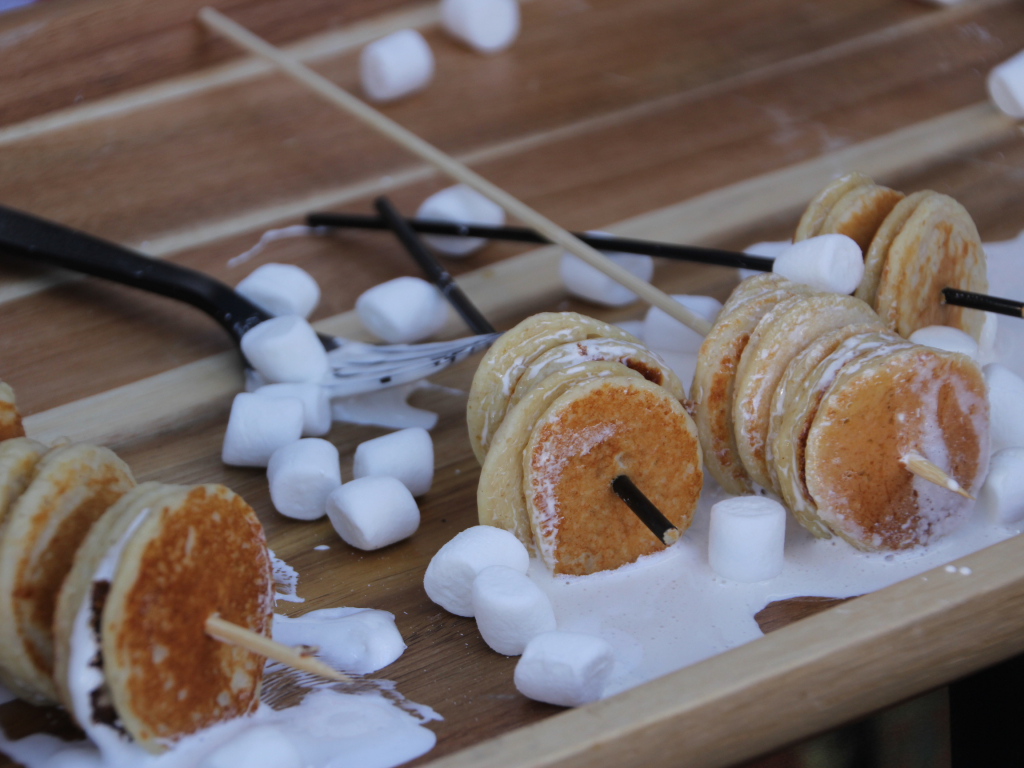Episode 67: Woods and Waters

We’ve got lots for you this week. Fishermen clash with offshore wind developers, once-depleted bluefin tuna experience a resurgence, and 3D printing helps bring manufacturing back to Massachusetts. Meanwhile, off-road vehicles bring money and grumbles to White Mountain towns. Plus, the fascinating story of when “Live Free or Die” bumped heads with the First Amendment — and why it could prove relevant in an upcoming Supreme Court case. Last, an appreciation of the sticky sweet snack of many a New England childhood.
Up and Down the Coast
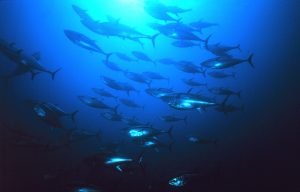
The bluefin tuna can reach lengths of almost 10 feet. They can swim from the Bahamas to Norway in 54 days. Photo credit: NOAA
Fishermen say it’s been decades since they’ve been able to catch so many Atlantic bluefin tuna so fast. Once severely depleted, populations of the prized sushi fish appear to be rebuilding. Now the industry and some scientists say the international commission that regulates the fishery can allow a much bigger catch. But some conservation groups disagree. From Portland, Maine Public Radio’s Fred Bever reports.
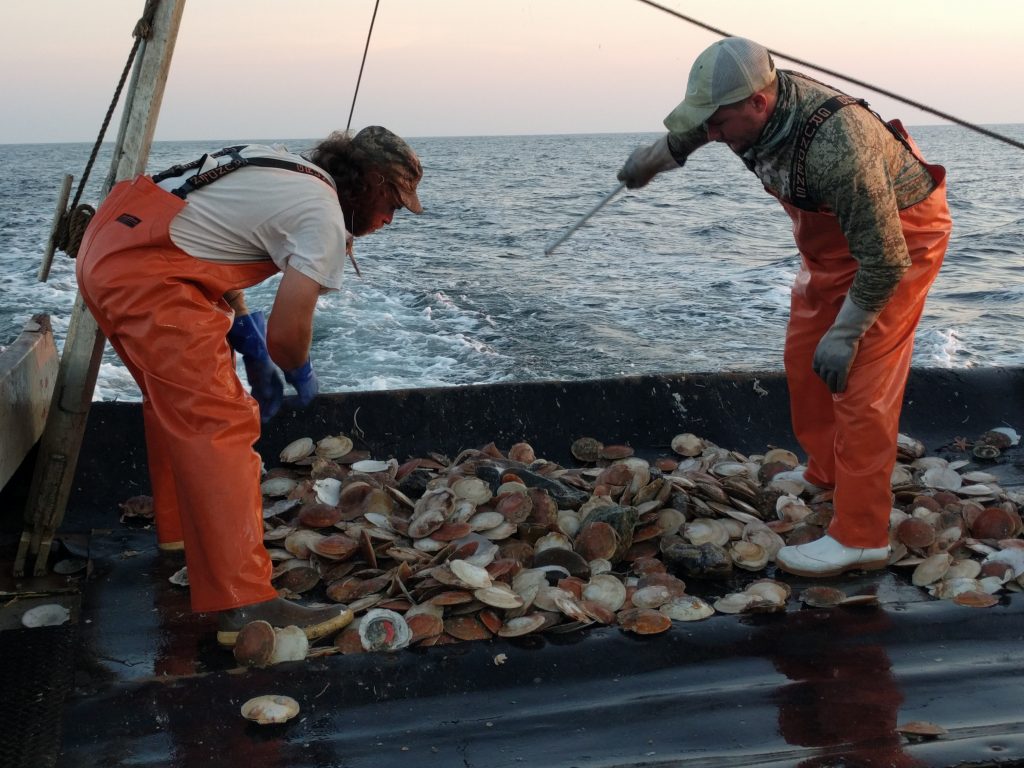
Crew members sort through scallops and discard bycatch on a fishing boat in the Atlantic 14 miles from Long Island’s Montauk Point. Photo by Jon Kalish for NENC
On the easternmost tip of Long Island, Montauk is the largest commercial fishing port in New York State. The nation’s first offshore wind farm is only a few miles away, off of Block Island, and many more such wind farms are in the works along the eastern seaboard. These plans have Montauk fisherman worried about the impact on their livelihoods. Independent producer Jon Kalish reports.
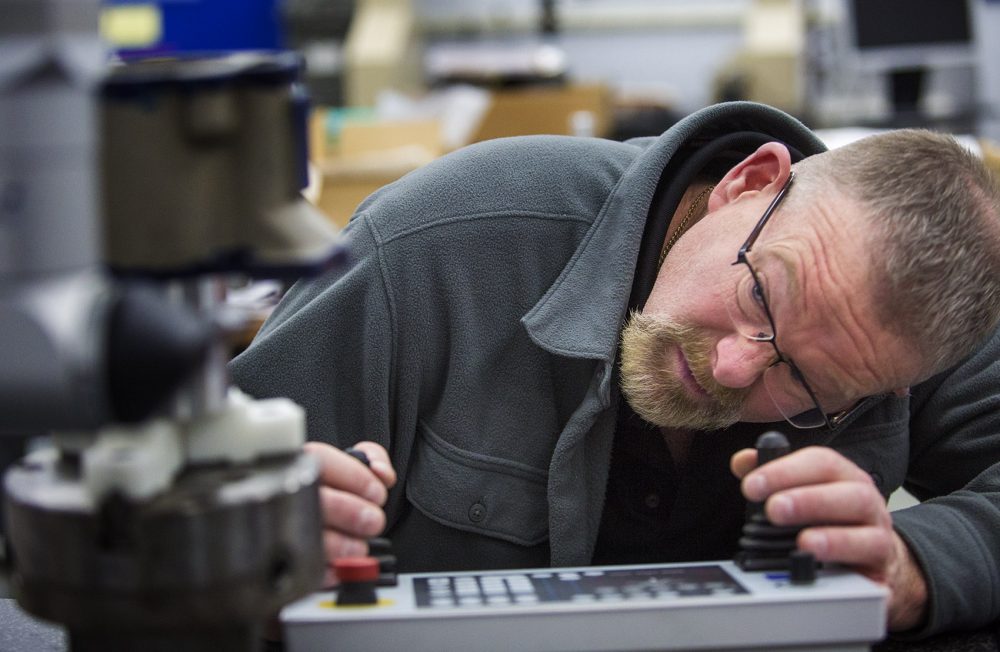
Mike Twombly uses a sophisticated tool to precisely measure the diameter of a part that has been recently fabricated at Custom Machine Group in Woburn, Mass. Photo by Jesse Costa for WBUR
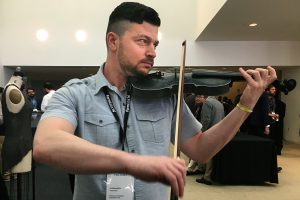
Alexander Gomenik, Professor of Engineering at Indiana University plays a plastic fiddle produced from a 3D printer at the Digital Factory Conference at the MIT Media Lab . (Photo by Bruce Gellerman for WBUR)
You don’t often see the label “Made in Massachusetts,” but manufacturing plays an outsized role in the economy of the Bay State. WBUR’s Bruce Gellerman takes us to factories on the front line of a new industrial revolution. It’s one that promises to transform how things are made, and the roles of workers. Read and listen to more from WBUR’s Future of Work series.
Living Free
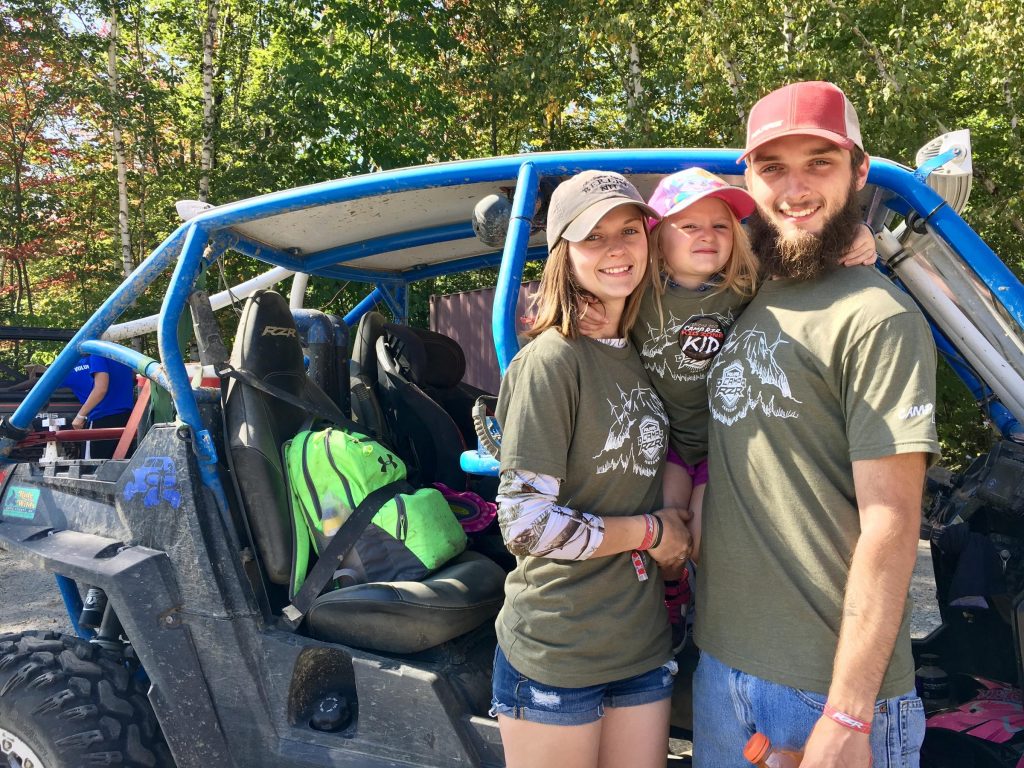
Three year-old Everly Lavertu enjoys riding ATV trails with her parents. But leading health and safety groups say young children should not be riding in ATVs. Photo by Casey McDermott for NHPR
These days in New Hampshire’s North Country, it’s not unusual to see caravans of all-terrain vehicles — or ATVs — all over. This region of the state has long been defined by the loss of its paper mill industry and high unemployment rate. But the surge in ATVs may be changing the North Country’s image. While some see promise in this growing group of tourists, others worry that the region might be losing something else along the way. Others raise safety concerns.
Reporters Casey McDermott and Todd Bookman looked into the ATV phenomenon in a three-part series for New Hampshire Public Radio. Casey McDermott joins us to talk about what they learned.
Below: take a virtual ride on an ATV trail in New Hampshire’s Jericho Mountain State Park.
The adventurous off-road spirit is certainly in step with New Hampshire’s celebrated motto: “Live Free or Die.”
The slogan, taken from a 1809 toast given by Granite State Revolutionary War general John Stark, has been a part of the New Hampshire license plate since 1971. But not long after it became standard, a man made the case that the requirement to display the motto on his car violated his freedoms. And his case made it all the way to the U.S. Supreme Court.
Next month, the court will hear arguments in a controversial free speech case out of Colorado, where a baker refused to make a wedding cake for a same-sex couple. The baker’s attorneys say they’re resting their arguments on a precedent set during the decades-old legal battle over “Live Free or Die.”
NHPR’s Lauren Chooljian tells the story of one determined New Hampshire couple, and how their battle with state’s famous motto continues to have an impact.
Creepy and Sweet
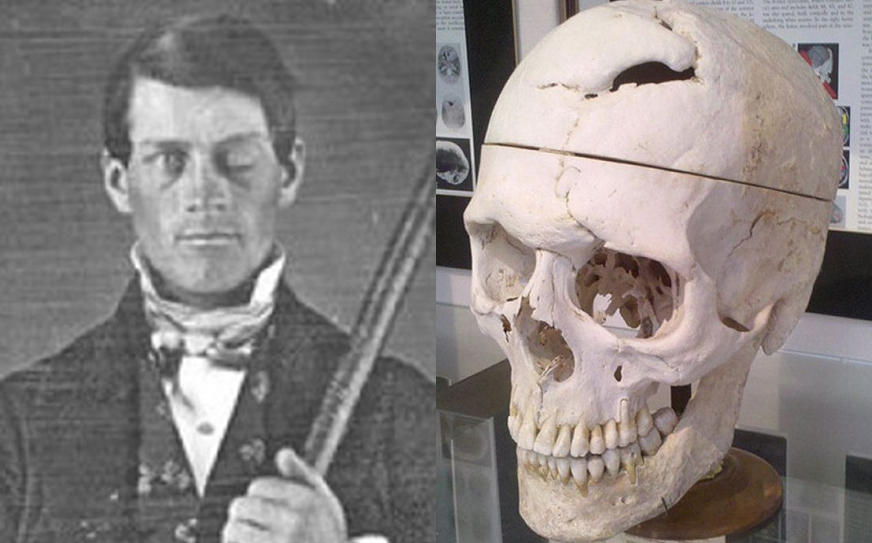
Left: A daguerreotype portrait of brain-injury survivor Phineas P. Gage, holding the tamping iron which injured him. Right: Gage’s skull on display at Harvard Medical School. Photos courtst of Jack and Beverly Wilgus/Wikimedia Commons
A grisly construction accident in New England in 1848 left railroad worker Phineas Gage with severe brain damage — but gave scientists valuable clues about how the brain functions. Gage survived the metal spike that went clear through his head, and has since become an icon of both science and pop culture. His skull is on display at Harvard Medical School in Cambridge, Massachusetts. WSHU’s Davis Dunavin brings us the story from his new podcast Off the Path from New York to Boston.
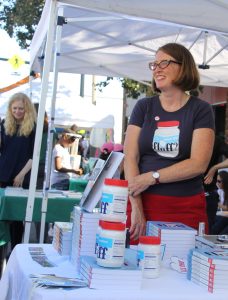
Festival founder Mimi Graney sells copies of her book “What the Fluff: The Sticky Sweet Story of an American Icon”
Autumn in New England is festival season. You can find fairs celebrating chrysanthemums, pumpkins, cranberries, or oysters. But the “What the Fluff” Festival in Somerville, Massachusetts is unique. Freelance reporter Carol Vassar paid a visit this year, and brings us an appreciation of a signature New England confection: Marshmallow Fluff.
Do you have a question about New England you’d like NEXT to investigate? Tell us about it here.
About NEXT
NEXT is produced at WNPR.
Host: John Dankosky
Producer: Andrea Muraskin
Executive Producer: Catie Talarski
Contributors to this episode: Fred Bever, John Kalish, Bruce Gellerman, Casey McDermott, Todd Bookman, Lauren Chooljian, David Dunavin, Carol Vassar
Music: Todd Merrell, “New England” by Goodnight Blue Moon.
We appreciate your feedback! Send praise, critique, suggestions, questions, and photos of your own medical anomalies to next@wnpr.org.

